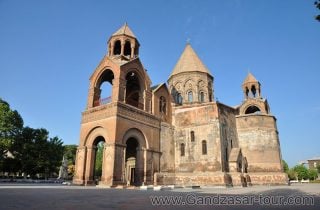The Biggest Theft from Armenia Ever

Productivity of the authorities, state governance is accepted to assess with realities, actual results, indices, numbers. This is the most preferred method of the authorities for the assessments of their activities. As this method excludes assessment of criminality for potential, missing opportunities, the possible, that is made impossible.
“What if…” formulations and questions, first and foremost, are futuristic. Politicians and officials, realizing it or not, refuse to answer to the question starting with “if” and containing “if.”
In fact, being futuristic these questions are very subject and very addressable. Those refusing to answer refuse not due to insatiable disgust towards futurism, but responsibility due to instigation to avoid their own portion of responsibility.
Meanwhile these questions are sometimes rather simple, and very frequently have well-known replies, and generally, are very painful and tragic, as those replies, besides everything, are expressions of irreversibility.
Would the April war be recorded if Armenia’s authorities for many years didn’t condition country’s defensiveness only and exclusively with the myth of being the only and irreplaceable ally and security guarantor?
Would the April war occur if Armenia’s authorities pursued a foreign policy deriving from Armenia’s interests for dozens of years, if those responsible for foreign policy considered themselves responsible not before the supervisors in other countries, but before their own?
Would the April war be recorded if those very foreign policy pursuers didn’t roll Armenia to the margin of global policy in everything supporting Russia, which appeared on that margin?
Would the April war occur if overnight of April 2 the command was given, to which soldiers of the famous footage were waiting for…?
Would Baku meeting be held between the presidents of Azerbaijan, Russia and Iran, if after being unsanctioned Armenia’s authorities built relations with neighboring and friendly countries not through the directives obtained from Russia, but out of their own interests?
Would Armenia be involved in all regional mega projects, which are already close to become a reality today, but without Armenia, if he latter managed initiatory foreign policy and not the one creating imitation of promotional initiative?
Would Armenia’s economy be so destroyed if not the notorious decision of membership to EEU?
Would Armenia’s economy be so competitive if any manifestation of competition wasn’t suffocated?
Would Armenia’s economy be so poor if a few oligarchs weren’t so rich?
Would seizure by “Sasna Tsrer” group be recorded if respective offices implemented their responsibilities?
Would seizure by “Sasna Tsrer” group be recorded if the Police wasn’t turned into a club of amateur theater and violence lovers?
Would seizure by “Sasna Tsrer” group be recorded if the National Security Service (NSS) was busy not following political opponents of the authorities, separate figures and exerting pressure over economic competitors, but provision of national security issues?
Would seizure by “Sasna Tsrer” group be recorded if politics in Armenia wasn’t eliminated to a degree and in a way, that solution of the problems through a weapon wasn’t the only way of imposing changes in the country?
The line of these questions may continue longer. With the same logic we may touch upon all the fields, without any exception, on the basis of which lies the reality of not using available opportunities.
Recording of the fact of theft from the existent and its assessment is quite easy, almost a mechanical work. The issue of bringing the thieves to responsibility in time and space seems almost impossible, but again mechanical. If of course, hopes for having a normal state haven’t been finally consumed, and if adapting to that exhaustion weren’t turned into eternal being.
It’s even more difficult to assess that the authorities of those times, and political elite in general, the damage they have caused to the state as a result of doing the impossible, ordinary or criminal inactivity. It’s difficult as it refers not ordinary embezzlement or corruption, but stolen, exhausted future of the state and the society. It’s the biggest theft ever, the one who uncovers and the one who brings to responsibility will be at best the history. Posthumously.
By Garnik Gevorgyan

























